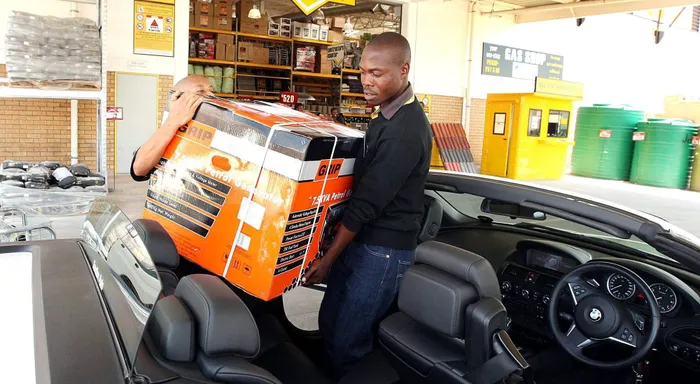Faulty generator, inverter complaints soar

The Consumer Goods and Services Ombud has reported an increase in complaints about solar systems and generators. File Picture: Simphiwe Mbokazi
Cape Town – The Consumer Goods and Services Ombud (CGSO) has received more than 200 complaints about solar systems and generators in the past year.
The regulator said it had observed an increase in the number of complaints relating to the purchase and installation of solar systems and generators from February 1, 2022, to February 9, 2023, recording a total 202 complaints.
Of the 134 complaints dealt with so far, consumers received redress in 36% of cases, including R277 273 in refunds.
Other compensation included the replacement of faulty inverters, solar panels, generators and batteries as well as the rectification of substandard workmanship.
The ombudsman, Magauta Mphahlele, noted that 46% of cases had to be terminated owing to a lack of co-operation from suppliers.
“This is of great concern to us as it means that complainants did not receive any redress.
“This outcome proves that there are high levels of non-compliance around the Consumer Protection Act in this sector, and we call on suppliers and installers of solar systems and generators to ensure that their service standards meet the requirements of the CPA and other manufacturing and safety standards required in terms of other laws of this country,” she said.
The most common type of complaints relating to this category included the non-issuance of compliance certificates.
Other complaints concerned accepting payment and not delivering the goods or installing the systems within agreed time frames, poor workmanship and installations that did not meet safety standards, warranties not being honoured, incorrect equipment purchased either by consumers or on behalf of consumers and suppliers refusing to accept returns.
There were also complaints about the lack of aftercare services, misleading advertising relating to the type, size and wattage of inverters, solar panels and batteries and inflated prices for panels, inverters, batteries and installation services.
Mphahlele noted that the nature of the complaints received indicated low levels of awareness and understanding by consumers of the highly technical product and installation specifications of solar systems and generators.
“Consumers are, generally speaking, not clued up on the requirements of systems or their limitations. As a result, consumers are suffering enormous financial losses by purchasing incorrect equipment and/ or, appointing unqualified installers.”
The CGSO offered several tips to consumers to help insulate themselves from “poor service and expensive mistakes”:
- Before purchasing or installing a solar system, contact a qualified and trusted solar installer to assess your needs and the structure of your home to advise on the type of system you require.
- Obtain several quotes and verify the credentials of the installer.
- Ensure that the system is installed by a qualified, accredited installer and that the contract you sign includes the provision of a certificate of compliance. Insurance companies and manufacturers will repudiate your claim if the system was not installed by an accredited installer.
- Ensure that the inverter and batteries are installed with surge protection as most warranties do not cover surge damage.
- Do not pay the full amount upfront and familiarise yourself with the terms and conditions relating to cancellations and refunds of deposits.
- Familiarise yourself with the warranty conditions and do not try to fix any problems yourself or tamper with the equipment as this will nullify the warranty.
Cape Times
Related Topics: